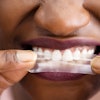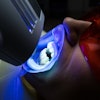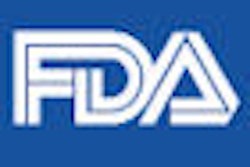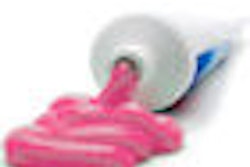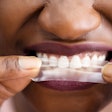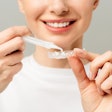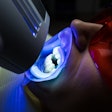Dentists need to take a closer look at potential hazards of exposing patients to zinc, a common ingredient in many dental products, according to a report by Amar Patel, DDS, a resident at the University of Maryland Dental School, and colleagues in the March/April 2011 issue of the journal General Dentistry.
The authors reviewed and analyzed a wide range of information now available to dentists and physicians on the use of zinc in dentistry. Many dental patients are regularly exposed to zinc from certain restorative materials, mouthwashes, toothpastes, and denture adhesives.
Small amounts of the element zinc are essential to the proper functioning of nearly every body system, but too much can be toxic. Some patients develop neurological problems from zinc. Toxicity from zinc can also be manifested as nausea, stomachache, and mouth irritation.
"Dentists are suddenly hungry for more information on zinc," stated co-author Nasir Bashirelahi, PhD, PharmD, a professor of biomedical sciences at the school, in a press release. "It is used in dental products abundantly, especially denture adhesives or pastes."
Growing concern with denture adhesives may tip the decisions of some patients away from getting fitted with dentures, which may require perpetual pasting to the gums, to opting for dental implants instead, typically a more expensive choice, Bashirelahi added.
"Of direct concern to dental professionals ... has been the recent discovery of neurologic disorders resulting from excessive use of denture adhesives, having high leachable zinc contents which can cause copper deficiencies," he and his co-authors wrote.
They explain that the link of excessive zinc intake has been related to copper insufficiency due to the competition in absorption patterns for the two metals in the gastrointestinal tract. Several studies, according to the review paper, link copper-deficient anemia and neutropenia with an increase of zinc intake.
"Suddenly, this issue is very important for the dental profession, with many practical applications," Bashirelahi stated. The authors also urge dentists to thoroughly understand the relationship among zinc, health, and dental products because of "legal ramifications."
Bashirelahi lectures in continuing education classes on dentistry where the topic "raises eyebrows," he said.
Presently, zinc-free adhesives are available on the market.
